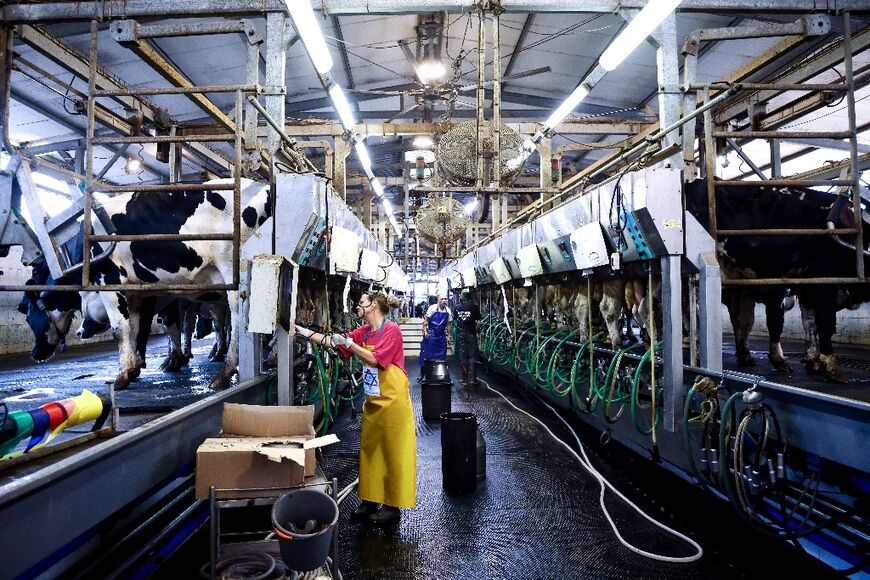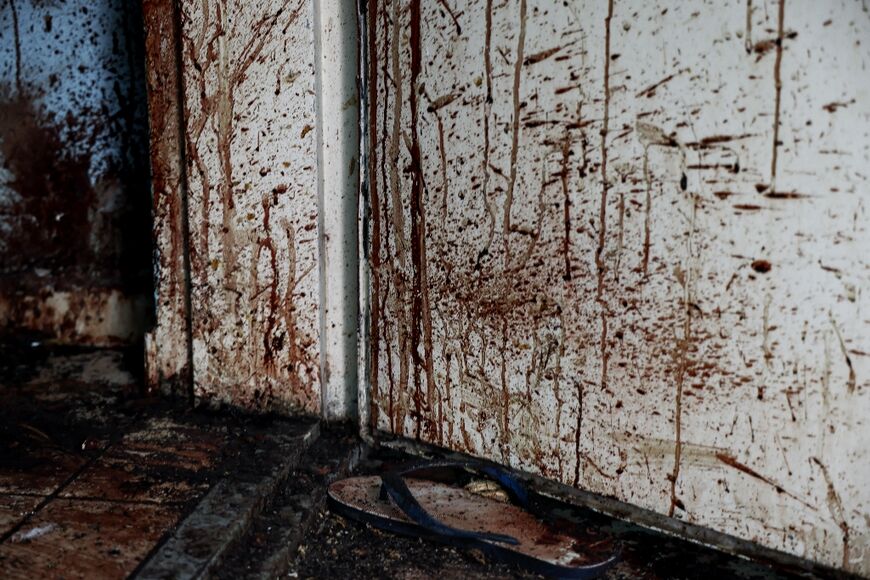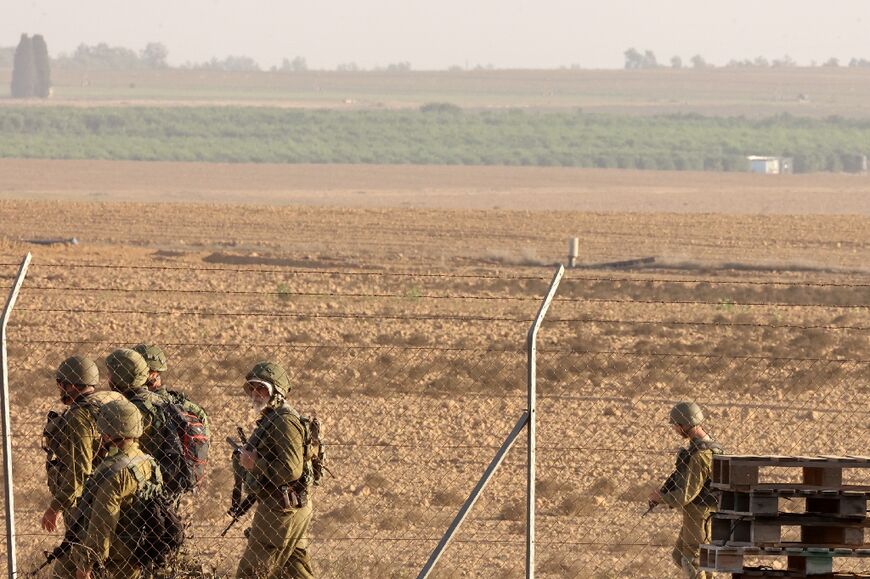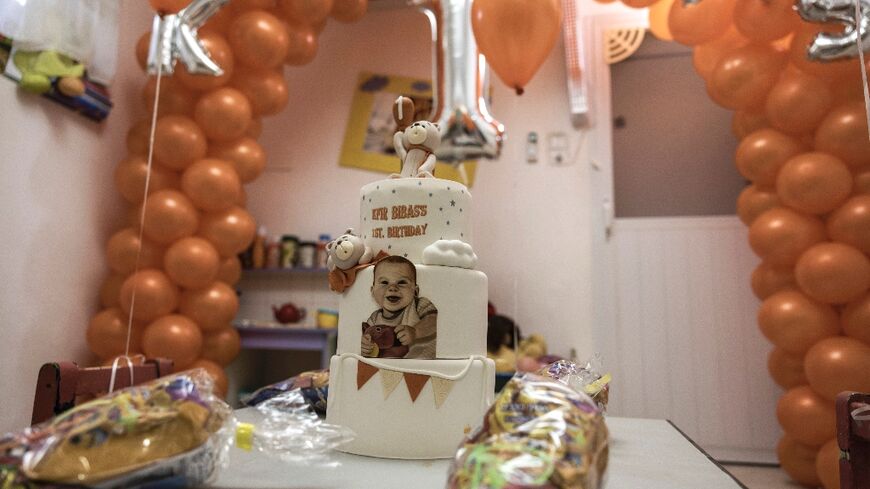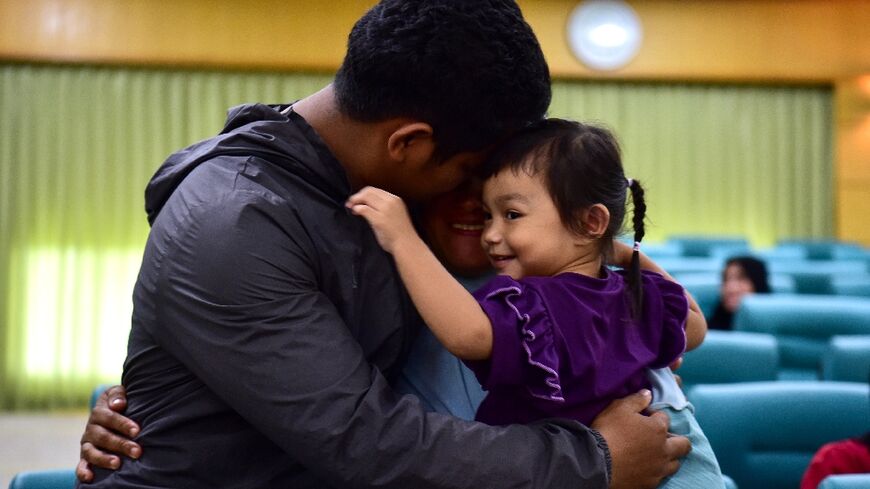Wartime farm: Israel volunteers step in for dead foreign labourers

"You have 15 seconds" to seek shelter when rocket alert sirens blare, an Israeli supervisor instructs wide-eyed students and housewives replacing dead Thai labourers at a dairy farm abutting the war-stricken Gaza Strip.
Israeli tanks and turret-mounted guns line the periphery of the Nir Oz Kibbutz, one of the communities hit the hardest by the Hamas attacks on October 7, which officials say killed about 1,200 people across southern Israel.
The attack, the worst in Israel's history, has plunged the country into war -- and the border region that the agriculture ministry calls the nation's "vegetable barn" into a labour crisis, leaving its farms, greenhouses and cow sheds largely abandoned.
Tens of thousands of volunteers -- including entire school classes -- have signed up across Israel to temporarily replace foreign workers killed, abducted or forced to flee after the attacks, and the large numbers of Palestinian labourers whose work permits were subsequently revoked.
At Nir Oz about 15 Thai farm workers were killed in their quarters, and have been replaced by a motley dozen-strong crew ranging from housewives to engineers and stockbrokers tending to around 600 dairy cows, despite battles raging just miles away in the Gaza Strip between Israeli forces and Hamas militants.
"It's risky to come here," said volunteer Haike Winter, 56, a tour guide from a kibbutz close to Nazareth.
"I felt I have to do it for the people here -- the people who are hurt, killed, taken hostage," she added, attaching suction tubes to cows' udders in a milking parlour.
- Broken glass -
The volunteers, aged from 18 to 60, are transported to the farm daily under military escort, with the soldiers scanning it each time for lurking gunmen and explosives.
Nir Oz is filled with charred homes and bullet-scarred community halls, and locals say around a quarter of its 400 residents were killed or abducted by Hamas gunmen.
Spent cartridges and broken glass crunch underfoot in the Thai labourers' living quarters, filled with burned children's cribs, bullet-holed furniture and toppled sacks of peanuts and beer.
The floors and walls of a bomb shelter where many of them huddled in their final moments appeared bathed in blood.
Only a few kilometres from Gaza, the volunteers are often reminded they only have seconds to dash to bomb shelters in the event of incoming fire from Hamas militants.
The frequent sirens and nearby explosions are often a test of nerves, with Winter saying one female volunteer quit on her second day.
Volunteer Ilay Fish, 23, tries not to let himself be affected by the October 7 attack. "Right now, my soul is not here," he told AFP. "I came here to fix it."
- 'Manpower crisis' -
The violence has scared away many farm workers.
Among their replacements those with little farming experience have to learn on the fly, sometimes bumbling through their tasks: one student volunteer said he saw his peer press the wrong button and send milk flying out of a container fitted over a cow's teats.
But many of the volunteers appear driven by a patriotic mission they say is nearly as vital to Israel's future as they believe the war on Hamas is -- tending the farms, animals and fields that have been abandoned since October 7.
The farm, jointly managed by Nir Oz and another border community, has lost about 100 dairy cows since the start of the war, operations manager Gadi Madmoni told AFP, many succumbing to infection after not being milked for days.
The military does not permit milking at night due to security concerns amid Israel's retaliatory strikes and invasion of Gaza, which the Palestinian territory's Hamas-run government says has claimed 11,500 lives, many of them children.
Milk production at the farm is down by nearly a third, to about 17,000 litres a day, Madmoni said, and according to the agriculture ministry milk yield across the border regions near Gaza is currently 60 percent of its pre-war level.
With a "manpower crisis" afflicting agriculture, it also expects a decline in production of winter crops.
"It is devastating to witness empty fields," Elise Brezis, an economics professor at Israel's Bar-Ilan University, told AFP.
"The problem is not economic," she added. "The real concern is maintaining secure borders."


